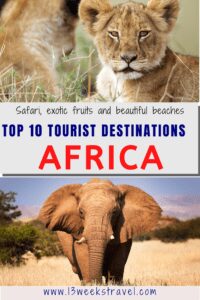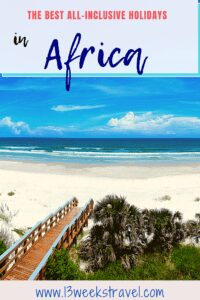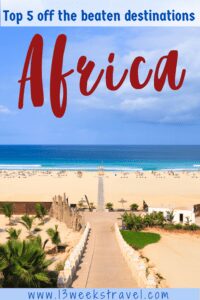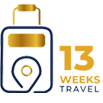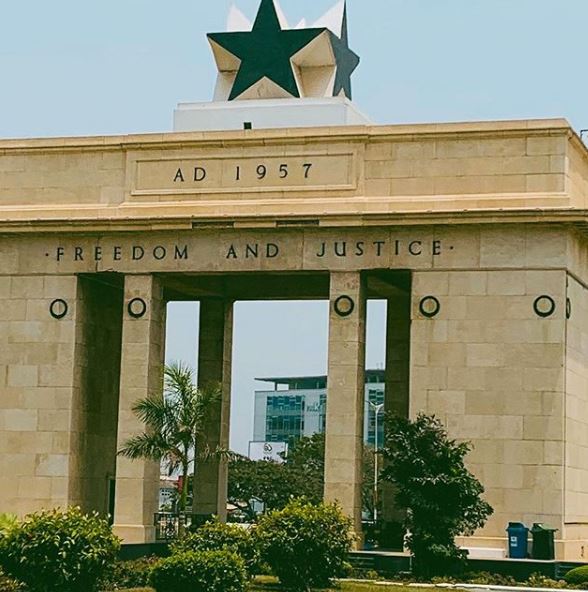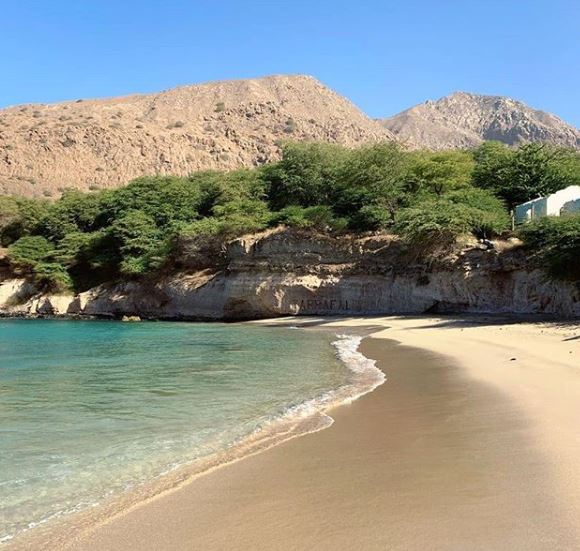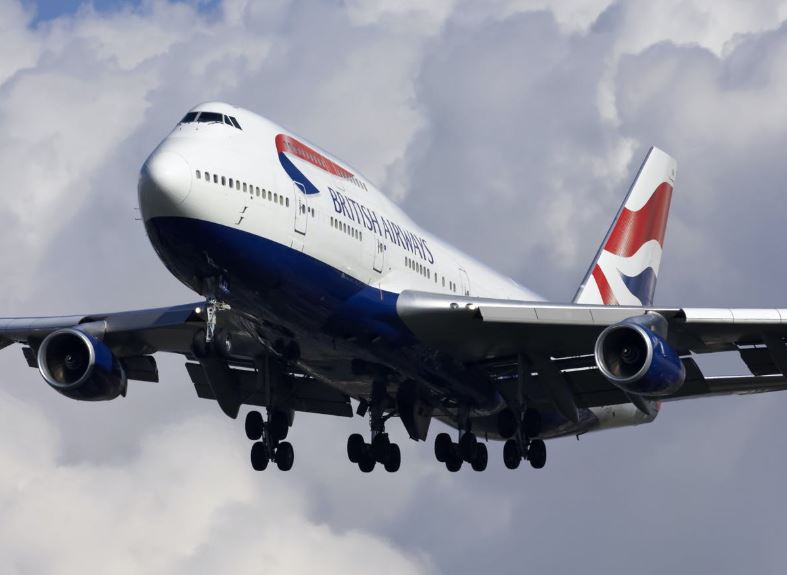Best Family Holidays to Africa: Top 10 Tourist Destinations Africa
Best Family Holidays to Africa: List of Countries In Africa
- Algeria (People’s Democratic Republic of Algeria)
- Angola (Republic of Angola)
- Benin (Republic of Benin)
- Botswana (Republic of Botswana)
- Burkina Faso
- Burundi (Republic of Burundi)
- Cameroon (Republic of Cameroon)
- Cape Verde (Republic of Cape Verde)
- Central African Republic (Central African Republic)
- Chad (Republic of Chad)
- Comoros (Union of Comoros)
- Côte d’Ivoire (Republic of Côte d’Ivoire)
- Djibouti (Republic of Djibouti)
- Egypt (Arab Republic of Egypt)
- Equatorial Guinea (Republic of Equatorial Guinea)
- Eritrea (State of Eritrea)
- Ethiopia (Federal Democratic Republic of Ethiopia)
- Gabon (Gabonese Republic)
- Gambia (Republic of The Gambia)
- Ghana (Republic of Ghana)
- Guinea (Republic of Guinea)
- Guinea-Bissau (Republic of Guinea-Bissau)
- Kenya (Republic of Kenya)
- Lesotho (Kingdom of Lesotho)
- Liberia (Republic of Liberia)
- Libya (Great Socialist People’s Libyan Arab Jamahiriya)
- Madagascar (Republic of Madagascar)
- Malawi (Republic of Malawi)
- Mali (Republic of Mali)
- Mauritania (Islamic Republic of Mauritania)
- Mauritius (Republic of Mauritius)
- Morocco (Kingdom of Morocco)
- Mozambique (Republic of Mozambique)
- Namibia (Republic of Namibia)
- Niger (Republic of Niger)
- Nigeria (Federal Republic of Nigeria)
- Republic of the Congo (Republic of the Congo)
- Rwanda (Republic of Rwanda)
- Sao Tome and Principe
- Senegal (Republic of Senegal)
- Seychelles (Republic of Seychelles)
- Sierra Leone (Republic of Sierra Leone)
- Somalia (Somali Republic)
- South Africa (Republic of South Africa)
- Sudan (Republic of Sudan)
- Swaziland (Kingdom of Swaziland)
- Tanzania (United Republic of Tanzania)
- Togo (Togolese Republic)
- Tunisia (Tunisian Republic)
- Uganda (Republic of Uganda)
- Western Sahara (Sahrawi Arab Democratic Republic)
- Zambia (Republic of Zambia)
- Zimbabwe (Republic of Zimbabwe)
Best Family Holidays to Africa: What you need to know about Africa
The people of Africa share similar experiences, stories of oppression, challenge and sheer unfairness faced many centuries ago but still present in their lives. Africa is thought to be the richest undeveloped continent in the world. Rich in terms of culture, diversity, natural resources, people and language but unfortunately severely undeveloped in many regions. Africa’s history is interesting and controversial, with many countries still in peril from the echos of the past in many ways. Africa as a continent and its people have endured long-standing sufferings in many aspects and as a result, has remained largely undeveloped.
From the Dutch to the British, to the French, to the Italians, to the Germans, to the Belgians, to the Spanish, to the Arabs have all conquered regions in Africa and influenced their architecture, language and food. Here is a break down of languages spoken across Africa.
Without doubt, Africa’s future is bright and needs more amplification of its beauty, natural resources and tourism in the hope that the more people visit our Motherland, the better we hope that Africa becomes the giant it deserves to be.
Best Family Holidays to Africa: Documents you need for your travel to Africa
Every country in Africa is different and while countries in the North of Africa will offer visa on arrival, some countries in the West of Africa have a cumbersome process for visa application which includes attending an interview at the consulate.
It is best to check each countries summary card for what is required.
You will need:
- A valid passport
- A visa
- Yellow Fever Certificate (for some countries)
- An identity card
- Marriage certificate
- Children’s birth certificate
Best Family Holidays to Africa: How to travel to Africa
Travelling through the air is the quickest way to travel to Africa. From the UK, there are direct flights to different countries in Africa. Some of the major flight carriers to Africa are:
British Airways
Emirates
Air France
Ethiopian Airways
Kenya Airways
From the US, the best flights to Africa are:
Delta
Best Family Holidays to Africa
Best time to visit Africa
Africa is made up of 55 recognised countries and the best time to visit each country varies. It could be the rainy season in the East of Africa and the Winter season in the South of Africa.
For a comprehensive guide on the weather and climates in Africa, read this post on the Weather and Climates in Africa.
Best Family Holidays to Africa
Health tips
I have a comprehensive post on travel to Africa Health tips
Best Family Holidays to Africa
Most common language Africa
The languages spoken in Africa are majorly influenced by their colonial past. Arabic is the most common language spoken in Africa, closely followed by French, English, Portuguese and Spanish. there are several local dialects as well but in most countries, you will be able to communicate with broken English, gestures and signs.
Best Family Holidays to Africa
Best African Countries to live in
My list of the best African countries to live in today will depend largely on your preference to the basic needs, shelter, security, the sort of experience you’re seeking.
- Rwanda
- Tanzania
- Kenya
- Namibia
- South Africa
Best Family Holidays to Africa
Top 10 tourist destinations in Africa
- Uganda
- Seychelles
- South Africa
- Morocco
- Egypt
- Tunisia
- Cape Verde
- Mauritius
- Ghana
- The Gambia
Best Family Holidays to Africa
The Best African countries to invest in
- Tanzania – Zanzibar
- South Africa – Cape Town
- Cape Verde
- Egypt
- Morocco
Best Family Holidays to Africa
The Top 5 off-the-beaten African destination
- Comoros
- Ethiopia
- Benin Republic
- Madagascar
- Sao Tome
Best Family Holidays to Africa
Best Safari holidays Africa
Safari’s holidays are the biggest source of income to tour operators in Africa. It is best to research which Safari tour operator you wish to go with. My post on the 20 best Luxury Travel companies explains which companies are best for Safari tours.
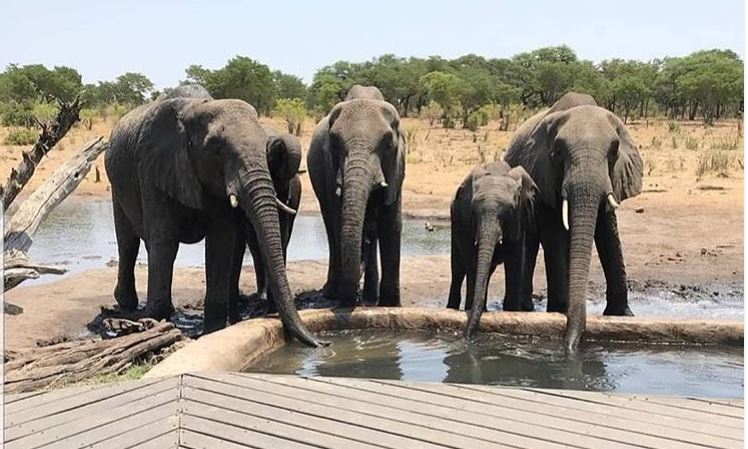
Best Family Holidays to Africa
Summary Cards
These summary cards for the best family holiday to Africa provides the basic information and links you will need to prepare and stay informed about travelling to Africa. The summary cards show the country of travel, the capital of the country, the population of the country, time difference, the international dialling code, the voltage for electric use, the links for visa applications and arrangements, the money used and the availability of ATMs, information for travel advice and the country’s tourist board information.
Travel in Zimbabwe: Summary Card
- Capital of Zimbabwe: Harare
- The population of Zimbabwe: 11.4 million
- Languages in Zimbabwe: English, Shona, Ndebele
- Time in Zimbabwe: GMT+2
- International dialling code in Zimbabwe: +263
- Voltage in Zimbabwe: 220 V, 50 Hz
- Visas for Zimbabwe: Zimbabwe visas
- Money in Zimbabwe: Zimbabwe Dollar (ZWD) Note, Zimbabwe has adopted the US dollar into everyday usage. 100,000,000,000,000 Zimbabwean dollar banknotes have become novelty souvenirs. ATMs are not widespread.
- Zimbabwe travel advice: Foreign & Commonwealth Office
- Zimbabwe tourist board: Zimbabwe Tourism
Travel in Zanzibar: Summary Card
Capital of Zanzibar: Zanzibar Town
The population of Zanzibar: 1 million
Languages in Zanzibar: Kiswahili, English
Time in Zanzibar: GMT+3
International dialling code in Zanzibar: +255
Voltage in Zanzibar: 240 V, 50 Hz
Visas for Zanzibar: Zanzibar visas
Money in Zanzibar: Tanzanian shilling (Tsh). Many lodges are priced in and accept payment in, US dollars. Changing money in banks
can incur high charges.
Zanzibar travel advice: Foreign & Commonwealth Office
Travel in Zambia: Summary Card
- Capital of Zambia: Lusaka
- The population of Zambia: 11.8 million
- Languages in Zambia: Bemba, Nyanja, Tonga, Lozi, Chewa, Nsenga, Tumbuka, Lunda, Kaonde, Lala and English
- Time in Zambia: GMT+2
- International dialling code in Zambia: +260
- Voltage in Zambia: 120V or 240V 50hz
- Visas for Zambia: Zambia visa
- Money in Zambia: Zambian kwacha (ZMK). Money can be exchanged in banks, in all major towns and foreign exchange bureaus. ATMs should not be relied on (and seldom take MasterCard) and credit/debit cards should be used with caution due to the potential for fraud. Lodges usually charge in US dollars and will take credit cards.
- Zambia travel advice: Foreign & Commonwealth Office
- Zambia tourist board: Zambia Tourism Board
Travel in Uganda: Summary Card
- Capital of Uganda: Kampala
- The population of Uganda: 32.3 million
- Languages in Uganda: English, Luganda
- Time in Uganda: GMT+3
- International dialling code in Uganda: +256
- Voltage in Uganda: 240 AC, 50 Hz
- Visas for Uganda: Uganda visa
- Money in Uganda: Uganda shilling (UGX). Travellers’ cheques are not widely accepted outside Kampala. Some larger hotels and services accept credit cards but it would be wise to take an emergency supply of US dollars or euros. It’s customary to tip guides and drivers. Leaving tips in restaurants and bars isn’t obligatory but is appreciated.
- Uganda travel advice: Foreign & Commonwealth Office
- Uganda tourist board: Tourism Uganda
Travel in Tunisia: Summary Card
- Capital of Tunisia: Tunis
- The population of Tunisia: 10 million
- Languages in Tunisia: Arabic, French
- Time in Tunisia: GMT+1/2
- International dialling code in Tunisia: +216
- Voltage in Tunisia: 127 – 220V/50Hz
- Visas for Tunisia: Tunisia visa
- Money in Tunisia: Tunisian dinar (TD). The Euro, UK pound and US dollars are easy to change. ATMs are available in major towns and tourist areas. Credit card use is not widespread. Tips are not necessary for restaurants or in taxis but will be much appreciated.
- Tunisia travel advice: Foreign & Commonwealth Office
- Tunisia tourist board: Tunisia National Tourist Office
Travel in Togo: Summary Card
- Capital of Togo: Lomé
- The population of Togo: 6.1 million
- Languages in Togo: French, Ewe, Mina, Kabye, Dagomba
- Time in Togo: GMT
- International dialling code in Togo: +228
- Voltage in Togo: 220V 50Hz
- Visa information for Togo: Visa information
- Money in Togo: West African franc (CFA) Visa cards are accepted at ATMs, but MasterCards are not. Travellers’ cheques can be exchanged easily, but credit card facilities are not great.
- Togo travel advice: Foreign & Commonwealth Office
- Togo tourist board: Togo
Travel in Tanzania: Summary Card
- Capital of Tanzania: Dodoma
- The population of Tanzania: 41 million
- Languages in Tanzania: Swahili (Kiswahili), English. Arabic and many other local languages are spoken
- Time in Tanzania: GMT+3
- International dialling code for Tanzania: +255
- Voltage in Tanzania: 230V 50Hz AC
- Visas for Tanzania: Tanzania visa
- Money in Tanzania: Tanzanian shilling (Tsh). ATMs are available in the larger towns, though may not always be in service. Credit cards are available at some top-end hotels, though not always. Tipping is common in tourist areas, but not universally.
- Tanzania travel advice: Foreign & Commonwealth Office
- Tanzania tourist board: Tanzania Tourist Board
Travel in Swaziland: Summary Card
- Capital of Swaziland: Mbabane
- The population of Swaziland: 1.3 million
- Languages in Swaziland: English, siSwati
- Time in Swaziland: GMT +2
- International dialling code in Swaziland: +268
- Voltage in Swaziland: 230V 50Hz
- Visa information for Swaziland: Not required for UK Nationals. Other nationalities should check for Visa information
- Money in Swaziland: Lilangeni, plural emalangeni, (E) South African rands are accepted in most places. Mbabane is the only place to have ATMs that accept foreign cards. Travellers’ cheques can be exchanged in most banks.
- Swaziland travel advice: Foreign & Commonwealth Office
- Swaziland tourist board: Swaziland
Travel in South Africa: Summary Card
- Size: 1,220,813 sq km
- Population: 58,775,022
- Capitals: Pretoria, Cape Town, Bloemfontein
- Languages: English, Afrikaans, Zulu, Xhosa, Southern Sotho, Tswana, Venda, Northern Sotho, Tsonga, Swati, Ndebele
- Currency: South African Rand (SAR)
- Time Zone: South Africa Standard Time (GMT+2)
- Voltage: 230V 50Hz, adaptor needed
- Visa: No visas for 90 days from the UK, US and some EU countries
- Cape Town temperature: 20/12°C June, 27/17°C December
Travel in Sierra Leone: Summary Card
- Capital of Sierra Leone: Freetown
- The population of Sierra Leone: 6.4 million
- Languages in Sierra Leone: English (official); the most widely spoken language is Krio
- Time in Sierra Leone: GMT
- International dialling code in Sierra Leone: +232
- Voltage in Sierra Leone: 220/240 AC, 50 Hz
- Visas for Sierra Leone: Sierra Leone visa
- Money in Sierra Leone: Sierra Leone leone (Le). There are no ATMs (except in ProCredit bank in Freetown) and few places accept credit cards. US dollars are useful for changing money and often accepted in shops.
- Sierra Leone travel advice: Foreign & Commonwealth Office
- Sierra Leone tourist board: Sierra Leone National Tourist Board
Travel in Seychelles: Summary Card
- Capital of Seychelles: Victoria, on the island of Mahé.
- The population of Seychelles: 87,000
- Languages in Seychelles: English and French are the official languages and Creole is widely spoken.
- Time in Seychelles: GMT+4
- International dialling code for Seychelles: +248
- Voltage in Seychelles: 220V 50Hz AC
- Visas for Seychelles: Seychelles visa
- Money in Seychelles: Seychelles rupee (SCR). By law, visitors must pay for all accommodation, car hire, transport and attraction entrance fees in foreign currency. Take plenty of cash and use credit cards as back up. ATMs are available at banks and dispense rupees.
- Seychelles travel advice: Foreign & Commonwealth Office
- Seychelles tourist board: Seychelles Tourism Board
Travel in Senegal: Summary Card
- Capital of Senegal: Dakar
- The population of Senegal: 13 million
- Languages in Senegal: French (official); other commonly spoken languages include Wolof, Pulaar, Mandinka, Serer and Jola
- Time in Senegal: GMT
- International dialling code in Senegal: +221
- Voltage in Senegal: 220 AC, 50 Hz
- Visas for Senegal: Senegal visa
- Money in Senegal: CFA francs (CFA). Euros are widely accepted. Dollar bills are also useful, although less common. Sterling can only be changed in banks. Credit cards are accepted in some places but far from all. Tipping is expected in restaurants but not taxis.
- Senegal travel advice: Foreign & Commonwealth Office
- Senegal tourist board: Senegal Tourist Office
Travel in Sao Tome and Principe: Summary Card
Capital of Sao Tome and Principe: Sao Tome
The population of Sao Tome and Principe: 212,679
Languages in Sao Tome and Principe: Officially Portuguese, but at least three Creole dialects (Saotomean, Angolares and Principe) are widely spoken.
Time in Sao Tome and Principe: GMT
International dialling code in Sao Tome and Principe: +239
Voltage in Sao Tome and Principe: 220 AC 50 Hz
Visas for Sao Tome and Principe: Sao Tome and Principe visa
Money in Sao Tome and Principe: Saotomese dobra (DB). Few places accept credit cards and travellers’ cheques, particularly outside the capital.
Sao Tome and Principe travel advice: Foreign & Commonwealth Office
Sao Tome and Principe tourist board: Sao Tome and Principe Tourism
Travel in Saint Helena: Summary Card
- Capital of Saint Helena: Jamestown
- The population of Saint Helena: 4,200
- Languages in Saint Helena: English (but a local dialect is spoken)
- Time in Saint Helena: GMT
- International dialling code in Saint Helena: +290
- Voltage in Saint Helena: 230V 50Hz
- Visa information for Saint Helena: Not required by UK nationals, although travel insurance documents and a return ticket must be shown at immigration on arrival. Travellers from other nationalities can find out about Saint Helena visas here.
- Money in Saint Helena: Saint Helena Pound (SHP). UK sterling is completely interchangeable with local currency. Credit cards are accepted; there are no ATMs on the island so take cash with you.
- Saint Helena travel advice: Foreign & Commonwealth Office
- Saint Helena tourist board: St Helena Tourism
Travel in Senegal: Summary Card
- Capital of Senegal: Dakar
- The population of Senegal: 13 million
- Languages in Senegal: French (official); other commonly spoken languages include Wolof, Pulaar, Mandinka, Serer and Jola
- Time in Senegal: GMT
- International dialling code in Senegal: +221
- Voltage in Senegal: 220 AC, 50 Hz
- Visas for Senegal: Senegal visa
- Money in Senegal: CFA francs (CFA). Euros are widely accepted. Dollar bills are also useful, although less common. Sterling can only be changed in banks. Credit cards are accepted in some places but far from all. Tipping is expected in restaurants but not taxis.
- Senegal travel advice: Foreign & Commonwealth Office
- Senegal tourist board: Senegal Tourist Office
Travel in Rwanda: Summary Card
- Capital of Rwanda: Kigali
- The population of Rwanda: 9 million
- Languages in Rwanda: Kinyarwanda (official) Kiswahili, French, English
- International dialling code in Rwanda: +250
- Voltage in Rwanda: 230V/50Hz
- Visas for Rwanda: Rwanda visas
- Money in Rwanda: Rwanda Franc (RWF). US dollars are easy to exchange. Most ATMs only accept local bank cards and credit cards are rarely accepted. If you get unstuck there are Western Union offices in most main towns.
- Rwanda travel advice: Foreign & Commonwealth Office
- Rwanda tourist board: Rwanda Tourism
Travel in Reunion: Summary Card
- Capital of Réunion (Département): Saint-Denis
- The population of Réunion: 827,000
- Languages in Réunion: French and Creole.
- Time in Réunion: GMT+4
- International dialling code in Réunion: +262
- Voltage in Réunion: 220AC 50 Hz
- Visas for Réunion: Réunion visa
- Money in Réunion: Euro (CRI). Traveller’s cheques are not widely accepted. ATMs are numerous and except for small B&Bs, most places accept credit cards. However, sometimes cards are refused for small amounts (typically under £16).
- Réunion travel advice: Foreign & Commonwealth Office
- Réunion tourist board: Réunion Tourisme
Travel in Namibia: Summary Card
- Capital of Namibia: Windhoek
- The population of Namibia: 2.1 million
- Languages in Namibia: English, German, Afrikaans, regional languages
- Time in Namibia: GMT+1 (GMT+2 October-April)
- International dialling code in Namibia: +264
- Voltage in Namibia: 220-230 V, 50 Hz
- Visas for Namibia: Namibia visa
- Money in Namibia: Namibian dollar (NAD). It is pegged to the South African rand and is interchangeable with it. Many lodges accept dollars. ATMs are not widespread – make sure you have enough cash on you when leaving a town. It is customary to give a tip of 10% in restaurants. Remember to tip porters and petrol station attendants.
- Namibia travel advice: Foreign & Commonwealth Office
- Namibia tourist board: Namibia Tourism Board
Travel in Mozambique: Summary Card
- Capital of Mozambique: Maputo
- The population of Mozambique: 21 million
- Languages in Mozambique: Portuguese plus more than 10 African languages
- Time in Mozambique: GMT + 2
- International dialing code in Mozambique: + 258
- Voltage in Mozambique: 220 AC, 50 Hz
- Visas for Mozambique: Mozambique visa
- Money in Mozambique: Mozambique metical (MTC). US dollars are widely accepted. There are ATMs and banks in all major cities; there are no banks in rural areas and on the islands.
- Mozambique travel advice: Foreign & Commonwealth Office
- Mozambique tourist board: Mozambique Tourism
Travel in Morocco: Summary Card
- Capital of Morocco: Rabat
- The population of Morocco: 34.9 million
- Languages in Morocco: Moroccan Arabic. French, Berber and Spanish (in northern parts) are also spoken
- Time in Morocco: GMT (GMT+1 June-September)
- International dialling code for Morocco: +212
- Voltage in Morocco: 127/220V 50Hz AC
- Visas for Morocco: Morocco visa
- Money in Morocco: Morocco Dirham (Dh). ATMs are widely available. Tipping and haggling are important parts of Moroccan culture.
- Morocco travel advice: Foreign & Commonwealth Office
- Morocco tourist board: Moroccan National Tourist Office
Travel in Mauritius: Summary Card
- Capital of Mauritius: Port Louis
- Population of Mauritius: 1,200,000
- Languages in Mauritius: English is the official language, but French and Creole are widely spoken.
- Time in Mauritius: GMT+4 (no daylight saving)
- International dialling code for Mauritius: +230
- Voltage in Mauritius: 220V 50Hz AC
- Visas for Mauritius: Mauritius visa
- Money in Mauritius: Mauritius Rupee (MUR). ATMs are widely available across the island and credit cards accepted most places. Most items are subject to 15% tax, be sure to ask if tax is included in the bill for meals, rooms etc or prepare for a nasty shock.
- Mauritius travel advice: Foreign & Commonwealth Office
- Mauritius tourist board: Discover Mauritius
Travel in Mali: Summary Card
- Capital of Mali: Bamako
- The population of Mali: 13.4 million
- Languages in Mali: French (official language) and Bambara, as well as numerous indigenous languages
- Time in Mali: GMT
- International dialling code for Mali: +223
- Voltage in Mali: 220V 50Hz AC
- Visas for Mali: Mali visa
- Money in Mali: Central African franc (CFA). There are just a few ATMs in Bamako and the rest of Mali, and they should not be relied on. Commissions are usually high, and some banks will not change US dollars. Euros are the best currency to carry. Some hotels and supermarkets change money and traveller cheques.
- Mali travel advice: Foreign & Commonwealth Office
Travel in Malawi: Summary Card
- Capital of Malawi: Lilongwe
- The population of Malawi: 16.3 million
- Languages in Malawi: Chichewa, English widely is spoken
- Time in Malawi: GMT+2
- International dialling code in Malawi: +265
- Voltage in Malawi: 230 V, 50 Hz
- Visas for Malawi: Not required by UK nationals. Find out more about Malawi visas here.
- Money in Malawi: Malawi kwacha (MK). Many lodges accept dollars. ATMs are not widespread – make sure you have enough cash on you when leaving a town.
- Malawi travel advice: Foreign & Commonwealth Office
- Malawi tourist board: Malawi Travel Marketing Consortium
Travel in Madagascar: Summary Card
- Capital of Madagascar: Antananarivo (Tana)
- The population of Madagascar: 20.5 million
- Languages in Madagascar: Malagasy, French official. French is widely spoken in all but some remote areas. English is spoken only in major tourist establishments and by some tour guides.
- Time in Madagascar: GMT+3
- International dialling code for Madagascar: +261
- Voltage in Madagascar: 220V 50Hz AC
- Visas for Madagascar: Madagascar visa
- Money in Madagascar: Madagascar ariary (Ar). In more remote parts of Madagascar, the old currency of Franc malgache (FMG) remains in use. Useful cash currencies are euros and US dollars. ATMs are available in most (but not all) towns; these accept Visa credit only, and likewise with hotels. Tipping is appreciated for guides and drivers, and most restaurants will add a service charge to the bill.
- Madagascar travel advice: Foreign & Commonwealth Office
- Madagascar tourist board: Madagascar Tourism
Travel in Liberia: Summary Card
- Capital of Liberia: Monrovia
- The population of Liberia: 3.6 million
- Languages in Liberia: English
- Time in Liberia: GMT
- International dialling code in Liberia: +231
- Voltage in Liberia: 120V 60Hz
- Visa information for Liberia: Visa information
- Money in Liberia: Liberian dollar (L$) Although US dollars are widely accepted. There are no ATMs in Liberia, travellers’ cheques aren’t exchanged and credit cards aren’t accepted either.
- Liberia travel advice: Foreign & Commonwealth Office
- Liberia tourist board: Liberia
Travel in Kenya: Summary Card
- Capital of Kenya: Nairobi
- The population of Kenya: 40 million
- Languages in Kenya: English, Kiswahili, indigenous languages
- Time in Kenya: GMT+3
- International dialling code in Kenya: +254
- Voltage in Kenya: 240 V, 50 Hz
- Visas for Kenya: Kenya visa
- Money in Kenya: Kenyan shilling (Ksh). Most main towns have ATMs. Dollars are useful for tipping and payments at lodges. Haggling is commonplace.
- Kenya travel advice: Foreign & Commonwealth Office
- Kenya tourist board: Kenya Tourist Board
Travel in Ghana: Summary Card
- Capital of Ghana: Accra
- The population of Ghana: 23.8 million
- Languages in Ghana: English, Asante, Ewe, others
- Time in Ghana: GMT
- International dialling code in Ghana: +233
- Voltage in Ghana: 220 AC, 50 Hz
- Visas for Ghana: Ghana visa
- Money in Ghana: Ghana cedi (GHS). British pounds, euros and US dollars are useful. ATMs are available in most towns and cities but aren’t always reliable. Guides should receive a tip. It’s not customary to leave tips in bars and restaurants but a small donation is always welcome.
- Ghana travel advice: Foreign & Commonwealth Office
- Ghana tourist board: Ghana Tourism
Travel in the Gambia: Summary Card
- Capital of The Gambia: Banjul
- The population of The Gambia: 1.6 million
- Languages in The Gambia: English, plus local languages Mandinka, Wolof and Fula
- Time in The Gambia: GMT
- International dialling code in The Gambia: + 220
- Voltage in The Gambia: 220/240 AC, 50 Hz
- Visas for The Gambia: Gambia visa
- Money in The Gambia: Gambia dalasi (GMD). Sterling or euros are the most useful currency to take. Credit cards are of limited use, mainly in hotels.
- The Gambia travel advice: Foreign & Commonwealth Office
- The Gambia tourist board: The Gambia Tourism Authority
Travel in Gabon: Summary Card
- Capital of Gabon: Libreville
- The population of Gabon: 1.2 million
- Language of Gabon: French, plus more than 40 African languages
- Time in Gabon: GMT+1
- International dialling code in Gabon: +241
- Voltage in Gabon: 220 AC, 50 HZ
- Visas for Gabon: Gabon visa
- Money in Gabon: Central African Franc (CAF). Credit cards are rarely accepted, even in upmarket establishments. Take cash in euros.
- Gabon travel advice: Foreign & Commonwealth Office
Travel in Ethiopia: Summary Card
- Capital of Ethiopia: Addis Ababa
- The population of Ethiopia: 85.2 million
- Languages in Ethiopia: Amharic plus 70 other local dialects, but English is the most taught foreign language in schools.
- Time in Ethiopia: GMT+3 Note: Ethiopians use the 12-hour clock. Sunrise is at midnight (6 am our time) and an hour later it’s 1 o’clock (7 am).
- International dialling code for Ethiopia: +251
- Voltage in Ethiopia: 220V 50Hz AC
- Visas for Ethiopia: Ethiopia visa
- Money in Ethiopia: Ethiopian Birr (ETB). Credit cards are not widely accepted and banks difficult to locate outside of major towns. Take small dollar bills and change these into one birr notes.
- Ethiopia travel advice: Foreign & Commonwealth Office
- Ethiopia tourist board: Ethiopia Embassy
Travel in Comoros: Summary Card
Capital of Comoros: Moroni
The population of Comoros: 773,000
Languages in Comoros: Arabic, French, Shikomoro
Time in Comoros: GMT +3
International dialling code in Comoros: +269
Voltage in Comoros: 220V 50Hz
Visa information for Comoros: Visa information
Money in Comoros: Comorian franc (CF) The Euro is the currency on Mayotte, but the other islands generally accept both. Credit cards are widely accepted in Mayotte, but only in upmarket places on the other islands. Only one bank on Mayotte will change traveller cheques.
Comoros travel advice: Foreign & Commonwealth Office
Comoros tourist board: Comoros
Travel in Cape Verde: Summary Card
- Capital of Cape Verde: Praia
- The population of Cape Verde: 511,000
- Languages in Cape Verde: Portuguese, Crioulo
- Time in Cape Verde: GMT-1
- International dialling code in Cape Verde: + 238
- Voltage in Cape Verde: 220AC, 50 Hz
- Visas for Cape Verde: Cape Verde visa
- Money in Cape Verde: Cape Verde escudo (CVE). Most major currencies can be changed, but euros are the most useful.
- Cape Verde travel advice: Foreign & Commonwealth Office
Travel in Botswana – Summary Card
- Capital of Botswana: Gaborone
- The population of Botswana: 2 million
- Languages in Botswana: English, Tswana, Afrikaans, plus ethnic languages.
- Time in Botswana: GMT+2
- International dialling code in Botswana: +267
- Voltage in Botswana: 220 AC, 50 Hz
- Visas for Botswana: Not required by UK nationals
- Money in Botswana: Botswana pula. ATMs can be found in major towns. Credit cards are widely accepted and most hotels will take travellers’ cheques. Tipping can be a minefield – ask for local advice on what’s appropriate.
- Botswana travel advice: Foreign and Commonwealth Office
- Botswana tourism board: Botswana tourism
Travel in Nigeria – Summary Card
- Capital of Nigeria: Abuja
- The population of Nigeria: 140 million
- Languages in Nigeria: English, Hausa, Yoruba, Igbo, Fulani
- Time in Nigeria: GMT+1
- International dialling code in Nigeria: +234
- Voltage in Nigeria: 240V 50Hz
- Visa information for Nigeria: Nigeria visa
- Money in Nigeria: Naira (N) Travellers’ cheques are not exchangeable in Nigeria. ATMs are becoming more popular, as are other credit card facilities, but you must take care against fraud.
- Nigeria travel advice: Foreign & Commonwealth Office
- Nigeria tourist board: Nigeria Tourism
Travel in Benin: Summary Card
- Capital of Benin: Porto Novo (official); Cotonou (largest city and main hub)
- The population of Benin: 8.5 million
- Languages in Benin: French (official): Fon widely is spoken
- Time in Benin: GMT+1
- International dialling code in Benin: +229
- Voltage in Benin: 220AC, 50 Hz
- Visas for Benin: Visas for Benin
- Money in Benin: CFA franc (CFA). Outside Cotonou, there’s hardly anywhere to change money. Take euros in large note denominations for a better rate. Forget credit cards.
- Benin travel advice: Foreign & Commonwealth Office
- Benin tourist board: Benin Tourism
Best Family Holidays to Africa: Final thoughts:
Africa my Africa. Africa is my motherland and the second largest continent in the world, it is the most beautiful continent in the world that you need to discover. You need to start planning the best family holidays to Africa right away. Have you explored visited Africa on family travels or have you had a luxury trip in Africa. Let me know in the comments what you think about Africa.
